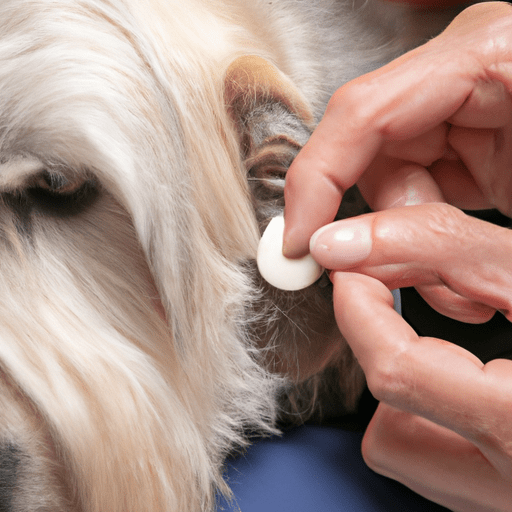“`markdown
How to Treat Yeast Infections in Dog’s Ear
As a caregiver, you know that your dog’s health is paramount. One common issue you might encounter is a yeast infection in your dog’s ear. But don’t worry. You’re not alone, and help is at hand.
Understanding Yeast Infections in Dogs
Yeast is a fungus that naturally lives on your dog’s skin and ears in small amounts. However, when the conditions are right, it can multiply and cause an infection. This could involve constant scratching, head shaking, or an unpleasant odor.
- Causes: An overgrowth of yeast can happen due to allergies, hormonal imbalances, or long periods of wet ears.
- Breeds at risk: Dogs with floppy ears like Basset Hounds and Cocker Spaniels are more prone to yeast infections.
Recognizing the Symptoms
To get the yeast infection under control, you need to first identify the symptoms. These include:
- Redness and swelling
- Brown, yellow, or bloody discharge
- Odor
- Crust or scabs in the ear
- Unusual behavior such as head shaking and scratching
Diagnosis and Treatment
A vet can properly diagnose a yeast infection by taking a swab of your dog’s ear and examining it under a microscope.
| Treatment | Description |
|---|---|
| Medication | Topical antifungal creams or drops prescribed by a vet |
| Cleaning | Regularly cleaning the ear with a vet-approved solution |
| Diet | A healthy diet to boost your dog’s immune system |
Home Remedies
Before trying any home remedies, it’s wise to consult with your vet first. However, some safe options include:
- Apple cider vinegar: Dilute it with equal parts of water and use as a cleaning solution.
- Coconut oil: Apply a few drops into the ear to soothe inflammation.
- Probiotics: Adding them to your dog’s diet can help to maintain a healthy balance of bacteria.
Preventing Future Infections
Prevention is always better than cure. Here are ways to prevent yeast infections:
- Regular ear checks: Look for any changes in color, smell, or discharge.
- Proper hygiene: Keep your dog’s ears clean and dry.
- Healthy diet: A balanced diet can help to maintain your dog’s overall health and immune system.
FAQ
Q: Can I use human medication on my dog?
A: No, always use medication prescribed by a vet.
Q: Can yeast infections spread to humans or other pets?
A: No, canine yeast infections are not contagious.
Q: How long does it take for the infection to clear?
A: It depends on the severity of the infection, but generally, it can take 1-2 weeks.
Remember, your dog’s health is in your hands. Regular check-ups and a keen eye for changes can help ensure your furry friend stays healthy and happy.
“`



